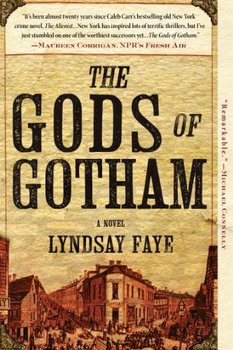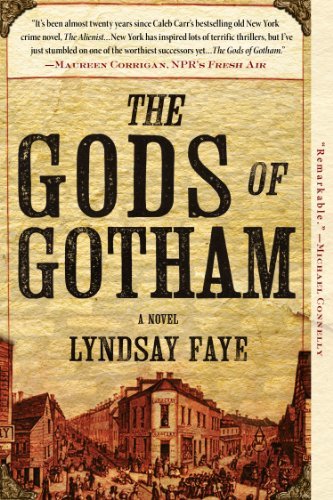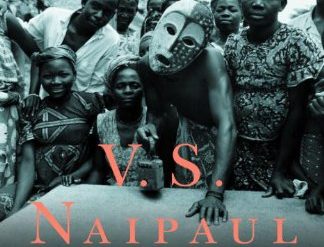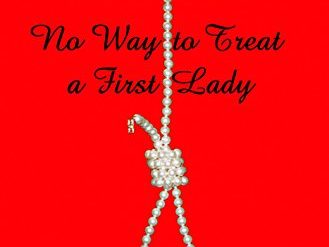
It’s 1845. The US Congress has approved the annexation of Texas and admitted Florida to statehood. The New York Evening Mirror has just published “The Raven” by Edgar Allen Poe. The Great Famine is raging in Ireland, driving hundreds of thousands of emigrants to US shores. The American economy has not yet fully recovered from the Panic of 1837. And the first “copper stars” of the New York City Police Department are hitting the streets. This is the background against which Lyndsay Faye sets The Gods of Gotham, the first of her three thrilling historical novels featuring New York cop Timothy Wilde. The book won her a nomination for an Edgar Award and numerous other plaudits.
Estimated reading time: 3 minutes
It’s half a century before today’s familiar five boroughs are to be united. New York City in 1845 occupies the southern tip of Manhattan Island south of 23rd Street. To the north lie woods and the village of Harlem. Some four hundred thousand people live in the city, with the population swelled by waves of immigrants, chiefly Irish.
The Gods of Gotham (Timothy Wilde #1) by Lyndsay Faye (2012) 429 pages ★★★★★
Most of the inhabitants, including nearly all the Irish and Negros, occupy dwellings that even then might have been considered unlivable. The far more numerous Irish are the “illegal immigrants” of their day. Cheap liquor flows freely. Crime is rampant, and violence between gangs of drunken “Americans” and Irish are common. Yet only now in 1845 have the city’s political bosses formed an official police force.
Twenty-seven-year-old Timothy Wilde joins the new force as a “roundsman.” Not long afterwards, he collides on the street with a frantic ten-year-old girl covered in blood. Soon, he finds himself at the center of an investigation into the murder of child prostitutes that threatens to tear the city apart.
The Gods of Gotham is a superior example of historical fiction. The book might as easily be characterized as a mystery or thriller, but the author’s attention to historical detail is compelling. Before each chapter she quotes from contemporary accounts that illustrate the depth of prejudice against the Irish. Here’s one of those quotes from the American Protestant in Defence of Civil and Religious Liberty Against Inroads of Papacy (1843):
“The popish countries of Europe are disgorging upon our shores, from year to year, their ignorant, superstitious, and degraded inhabitants, not only by tens, but by hundreds of thousands, who already claim the highest privileges of native citizens, and even the country itself.”
For related reading
If you enjoy reading history in fictional form, check out 20 most enlightening historical novels (plus dozens of runners-up). And if you’re looking for exciting historical novels, check out Top 10 historical mysteries and thrillers.
You might also enjoy my posts:
- Top 10 mystery and thriller series
- 20 excellent standalone mysteries and thrillers
- 30 outstanding detective series from around the world
- Top 20 suspenseful detective novels
And you can always find my most popular reviews, and the most recent ones, on the Home Page.


























